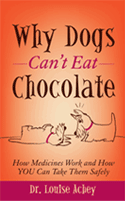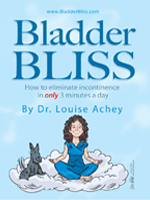Medicines You Shouldn’t Take
Tags: Beers criteria, Beers List, pillbox worksheet
Q: Are there medicines that you shouldn’t take?
Yes. You should avoid taking any medicines that you are allergic to or which have caused you problems in the past. For example, if you are allergic to penicillin, taking amoxicillin would be A BAD IDEA.
Next, watch out for medicines that don’t mix well with medicines that you’re already taking, like ibupofen for a headache if you already take a blood thinner. And if you have a few extra antibiotic pills left over from your last prescription, don’t save them to take when you feel a cold coming, to “nip it in the bud”.
Even if they offer nicely, you should just say no to taking other people’s prescription medicines. What is perfectly fine for them could be deadly for you, either because it’s related to something you have reacted to in the past or are allergic to, or it shouldn’t be combined with what you’re already taking.
Then there are the troublemakers. Some medicines start out doing a good job but as we get older they cause more problems than they solve. As we age, our bodies change in ways that affect how we react to prescription and non-prescription medicines. The older we get the less medicine it takes to affect us and the more we experience the dark side of taking medicines – the side effects they cause.
Getting older makes us more sensitive to the side effects of medication, shifting the balance of taking a prescription medicine from an expected benefit toward potential risk. In fact, the older you become the more likely you will experience confusion, dizziness, and lightheadedness from your pills.
Side effects from medicines can cause problems with thinking, memory, and balance that seriously threaten your ability to live independently. 13% of all hospitalizations are related to problems with prescription medicines, and happen most often to seniors.
One solution to taking medicine as we age is to use a lower dose to begin with and slowly increase it. This is the “Start Low and Go Slow” method. Unfortunately, using less medicine in an elderly person is not always enough to avoid problems. Some medicines are much more likely to cause confusion, memory problems and unsteadiness on your feet, even at low doses. These medicines are more dangerous to use in older people because medication errors from confusion and falls from dizziness or lightheadedness can dramatically reduce their ability to live independently.
Medicines that cause problems in older people were a particular interest and concern of a geriatric doctor called Mark H. Beers. He noticed how some commonly prescribed medicines caused delirium and falls in nursing home patients. Dr. Beers tracked these medicines and the side effects they caused, eventually identifying a list of medicines that tended to cause more harm than benefit when given to older people.
First published in 2009, Dr. Beers’ list became known as the Beers List or Beers’ Criteria and included sedatives like sleeping pills, antidepressants, antipsychotics, and muscle relaxants. The Beers List of medicines was updated in 2012 by the American Geriatrics Society to include medicines that affect all older adults, not just those in nursing homes. Are you on one of these medicines? You can look at the updated 2012 Beers List at: http://www.americangeriatrics.org/files/documents/beers/BeersCriteriaPublicTranslation.pdf.
Don’t stop any medicine you take just because it’s on a list! Check with your doctor first. Many medicines should be tapered, not stopped cold turkey. If you’ve noticed a change in your thinking or in your balance, check with your doctor, especially if you’ve had any recent medication adjustments. Be sure to bring a complete list of all of your medicines when you come to the doctor so they don’t overlook a new medicine prescribed by someone else. My Ask Dr. Louise Pillbox Worksheet is available FREE as a download at www.askdrlouise.com/products.



